Introduction
Parenting a child with autism can be emotionally challenging, but understanding and supporting autism moms is essential. This article covers various aspects of supporting and empowering Parent Advocates, including creating a supportive environment, navigating challenges, prioritizing self-care, building a community of support, accessing education and resources, breaking down stigmas and stereotypes, and celebrating their strengths and resilience. By providing guidance and resources, this article aims to help Parent Advocates navigate the challenges they face and ensure the well-being of their children.
Understanding the Emotional Burden of Raising a Child with Autism
Parenting a child with autism can come with significant emotional challenges. It is important to recognize and understand the emotional burden that autism moms often carry.
From the initial diagnosis to ongoing therapies and interventions, autism moms may experience a range of emotions, including stress, anxiety, guilt, and even grief. Understanding and acknowledging these emotions is the first step in providing support to autism moms. It is crucial to create a safe space where they can express their feelings without judgment and find comfort and understanding from others who are going through similar experiences.
Creating a Supportive Environment for Autism Moms
Supporting autism moms involves creating a supportive environment where they can thrive. This includes providing access to resources, information, and services that can help them navigate the challenges they face.
Creating a support network of other autism moms can be invaluable, as it offers opportunities for sharing experiences, exchanging advice, and fostering a sense of community. Additionally, offering practical assistance such as respite care, therapy options, and educational opportunities can lighten the load for autism moms and enable them to focus on their own well-being and the well-being of their children.
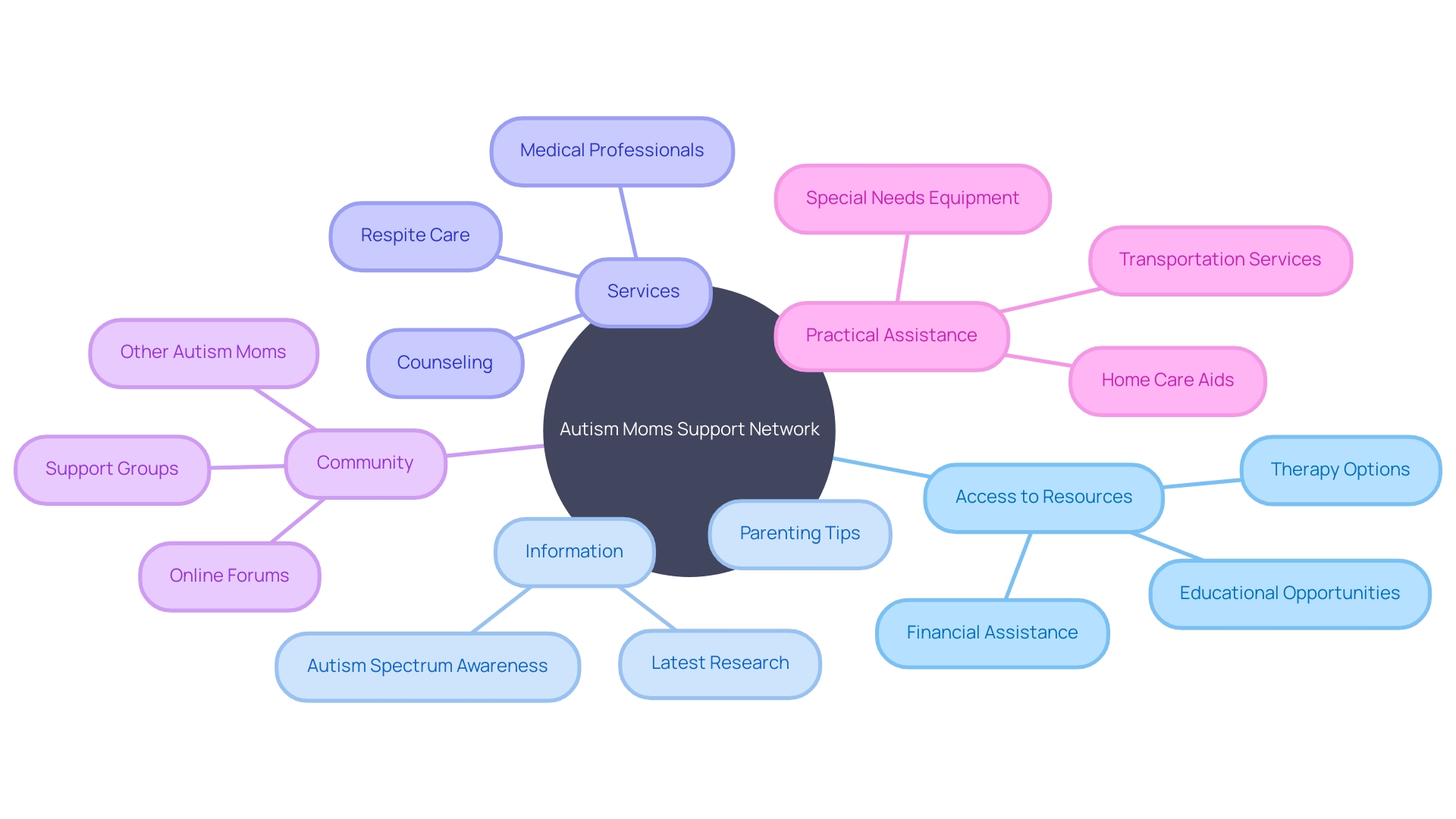
Navigating the Challenges of Parenting an Autistic Child
Parenting an autistic child can present unique challenges that require patience, understanding, and flexibility. It is essential for autism moms to develop strategies for navigating these challenges.
This can involve learning effective communication techniques, understanding sensory needs, implementing behavior management strategies, and advocating for their child's needs. By equipping autism moms with the necessary tools and knowledge, they can feel empowered to navigate the daily challenges of parenting an autistic child with confidence and resilience.
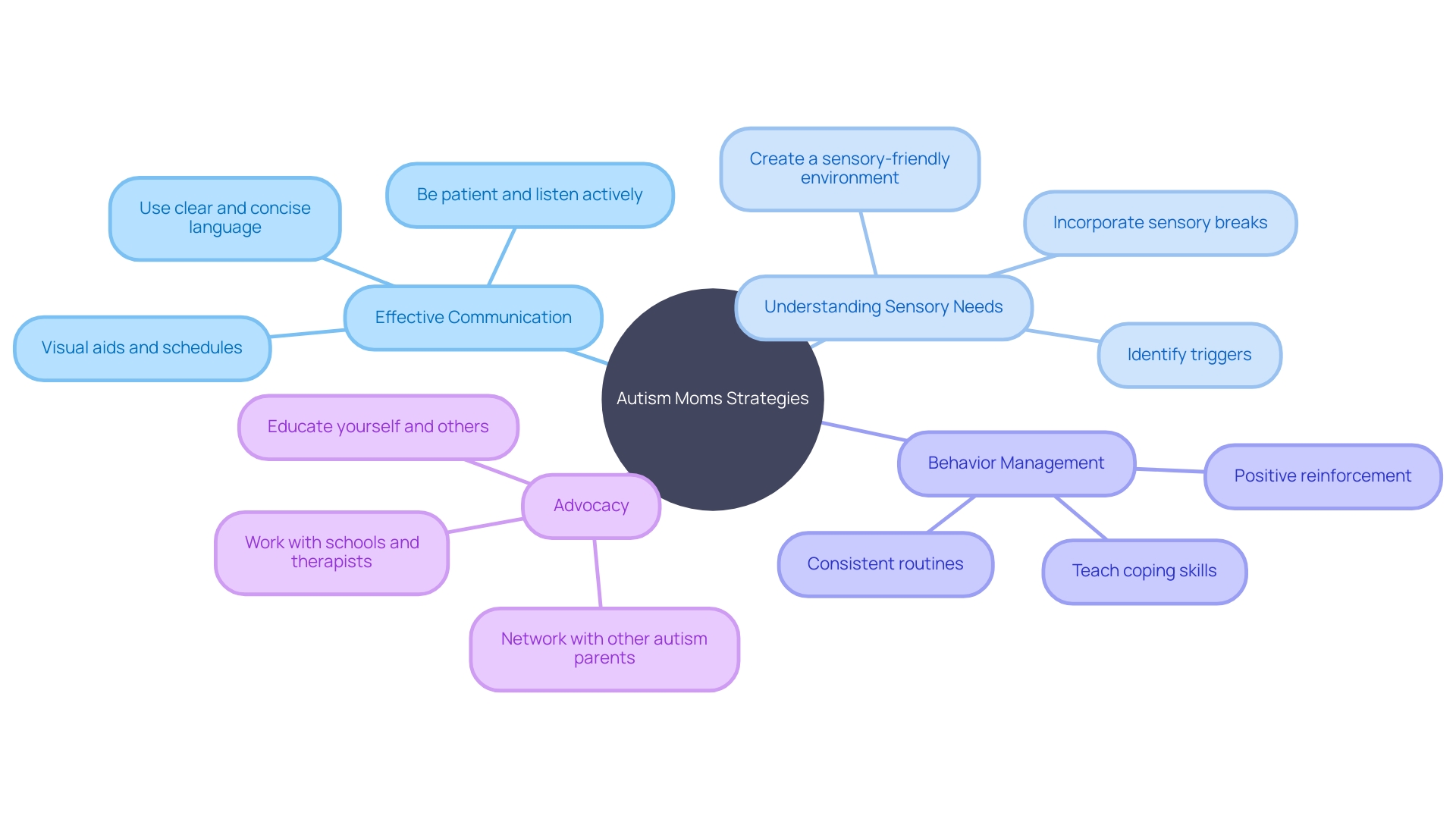
The Importance of Self-Care for Autism Moms
Self-care is crucial for the well-being of autism moms. It is easy for them to get caught up in the demands of caring for their child and neglect their own physical and emotional needs. However, taking care of oneself is not selfish but necessary to maintain a healthy and balanced life.
Autism moms should prioritize self-care activities that help them relax, recharge, and rejuvenate. This can include activities such as exercise, practicing mindfulness, seeking therapy or counseling, pursuing hobbies, and connecting with friends and support networks. By prioritizing self-care, autism moms can better support their child and navigate the challenges they face.
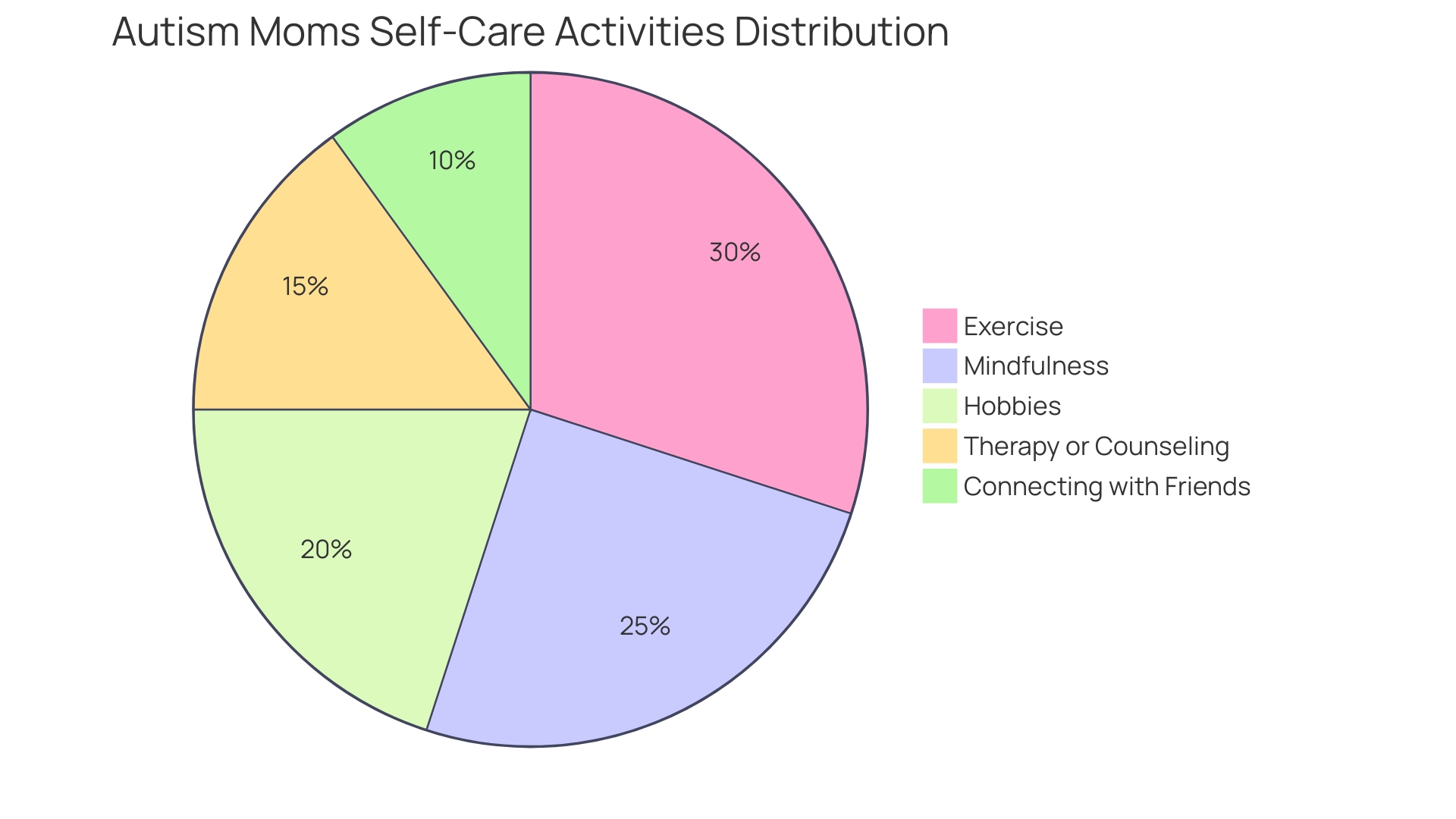
Building a Community of Support for Autism Families
Building a community of support for autism families is crucial in providing a sense of belonging and understanding. Autism moms can benefit greatly from connecting with other families who share similar experiences.
This can be done through support groups, online communities, or local organizations. It is important to create a space where autism moms can come together to share resources, offer support, and celebrate successes. By fostering a sense of community, autism moms can feel empowered, validated, and less isolated in their journey.
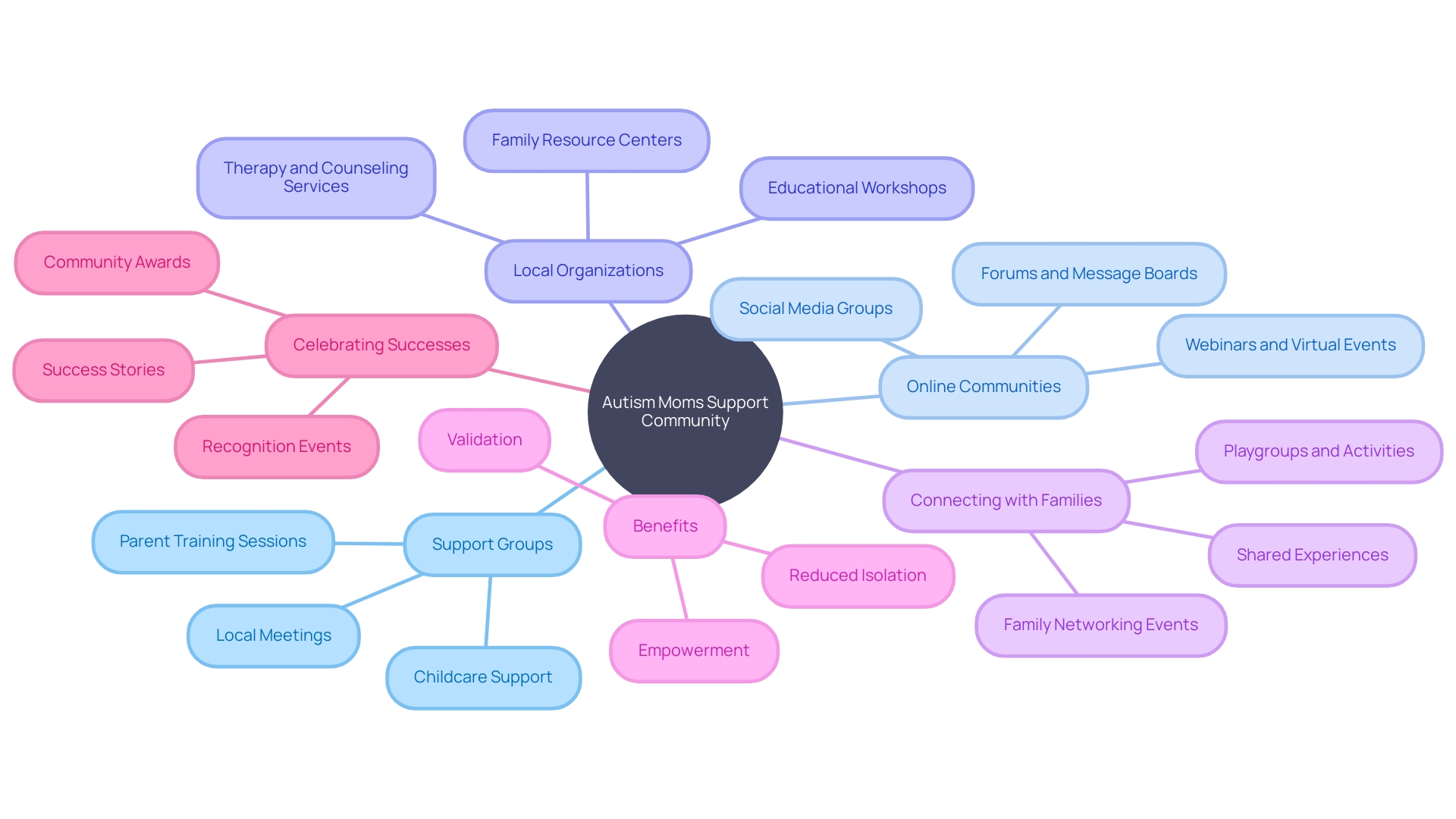
Empowering Autism Moms through Education and Resources
Educational empowerment is a cornerstone for autism moms, paving the way for them to effectively support their child's journey. By delving into the intricacies of autism, therapies, and interventions, these dedicated mothers can craft a tailored approach for their child's development. Workshops, webinars, and training sessions serve as a fountain of knowledge, covering a breadth of topics that arm them with the skills to be staunch advocates for their child.
The Individuals with Disabilities Education Act (IDEA) underscores the importance of preparing students for post-high school life, encompassing further education and employment. This becomes even more relevant as the trend of homeschooling among autism families rises, driven by varied motivations. With the average age of autism diagnosis being four years old, despite earlier developmental indicators, the journey is often complex and filled with crucial decision-making.
To navigate this labyrinth, educational resources and a firm understanding of legal entitlements, such as those provided by IDEA, are vital. They ensure that inclusion is not just a buzzword but a lived reality from early childhood through to public schooling. These resources empower autism moms to confidently secure the necessary support for their child, ensuring that every child with autism receives high-quality, individualized programming and the chance to thrive in inclusive early learning environments.

Breaking Down Stigmas and Stereotypes Surrounding Autism Moms
Autism moms often face stigmas and stereotypes that can hinder their ability to navigate challenges and seek support. It is essential to break down these stigmas and stereotypes by promoting awareness, understanding, and acceptance.
This can be done through advocacy efforts, sharing personal stories, and challenging misconceptions about autism and motherhood. By creating a more inclusive and supportive society, autism moms can feel empowered to embrace their role and seek the assistance they need without fear of judgment or discrimination.
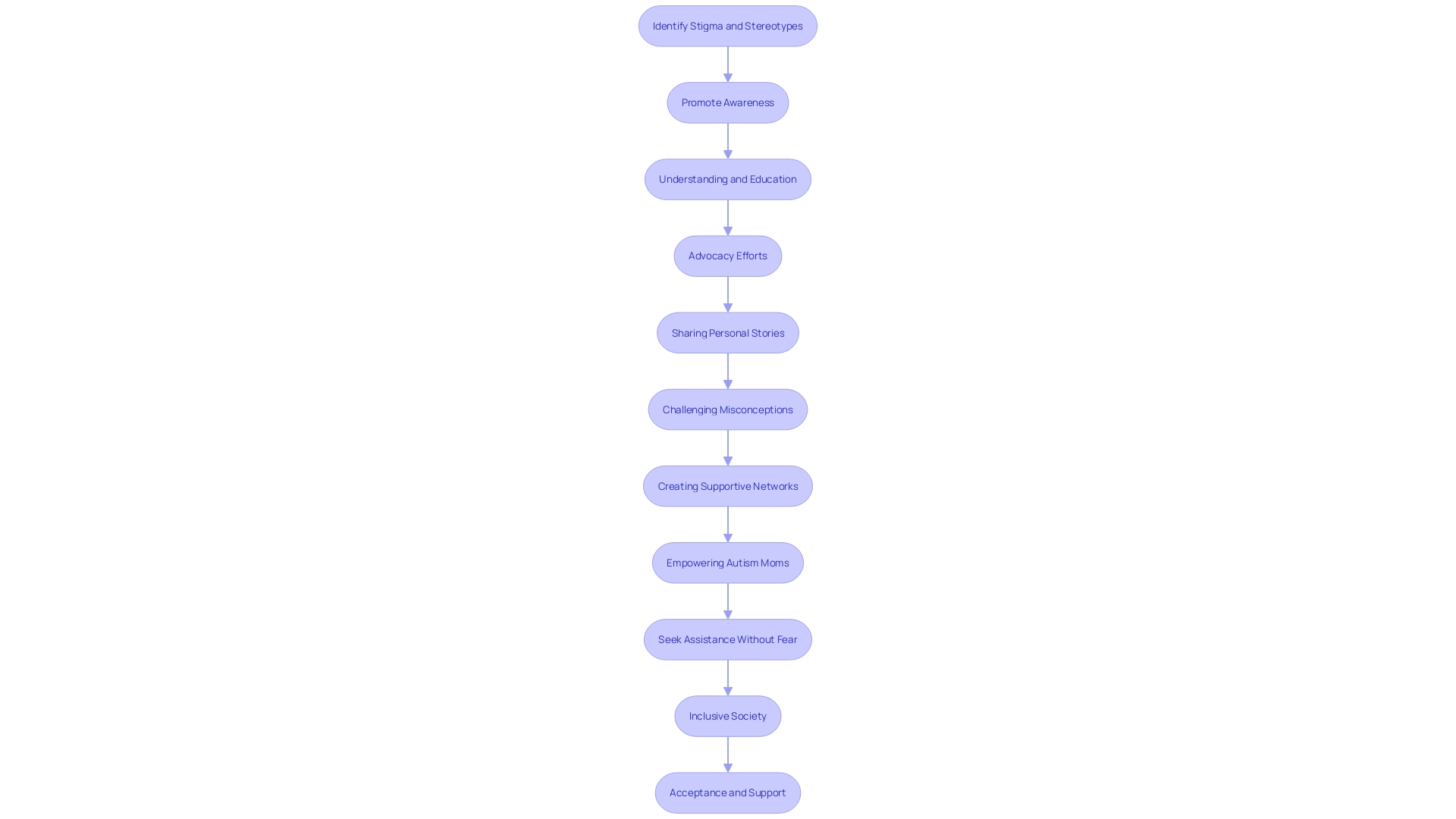
Celebrating the Strengths and Resilience of Autism Moms
Autism moms possess incredible strengths and resilience in their journey of raising a child with autism. It is important to celebrate and acknowledge these qualities.
By highlighting the strengths and resilience of autism moms, we can inspire and empower others who may be facing similar challenges. Recognizing their efforts, perseverance, and unwavering love for their child can go a long way in providing support and encouragement. By celebrating the strengths and resilience of autism moms, we can foster a culture of appreciation and admiration for their invaluable role in their child's life.
Conclusion
In conclusion, supporting and empowering autism moms is crucial for the well-being of their children. By creating a supportive environment where they can express their feelings without judgment and find comfort from others, we help them navigate emotional challenges.
Providing access to resources and services helps autism moms navigate the unique challenges of parenting an autistic child. Equipping them with effective communication techniques, knowledge of sensory needs, and advocacy skills empowers them to confidently face these challenges.
Self-care is vital for autism moms. Prioritizing activities that help them relax and recharge enables them to better support their child and handle the demands of caregiving.
Building a community of support for autism families fosters a sense of belonging. Connecting with other families provides opportunities for sharing resources, offering support, and celebrating successes.
Educational empowerment is key. By gaining knowledge about autism, therapies, and legal entitlements, autism moms can advocate for their child's development. Breaking down stigmas and stereotypes is important. Promoting awareness and understanding creates a more inclusive society where autism moms can seek assistance without fear of judgment or discrimination. Lastly, celebrating the strengths and resilience of autism moms inspires others facing similar challenges. In summary, by understanding and supporting autism moms in creating a supportive environment, navigating challenges, prioritizing self-care, building a community of support, accessing education and resources while breaking down stigmas; we empower Parent Advocates to navigate with confidence and ensure the well-being of their children.




